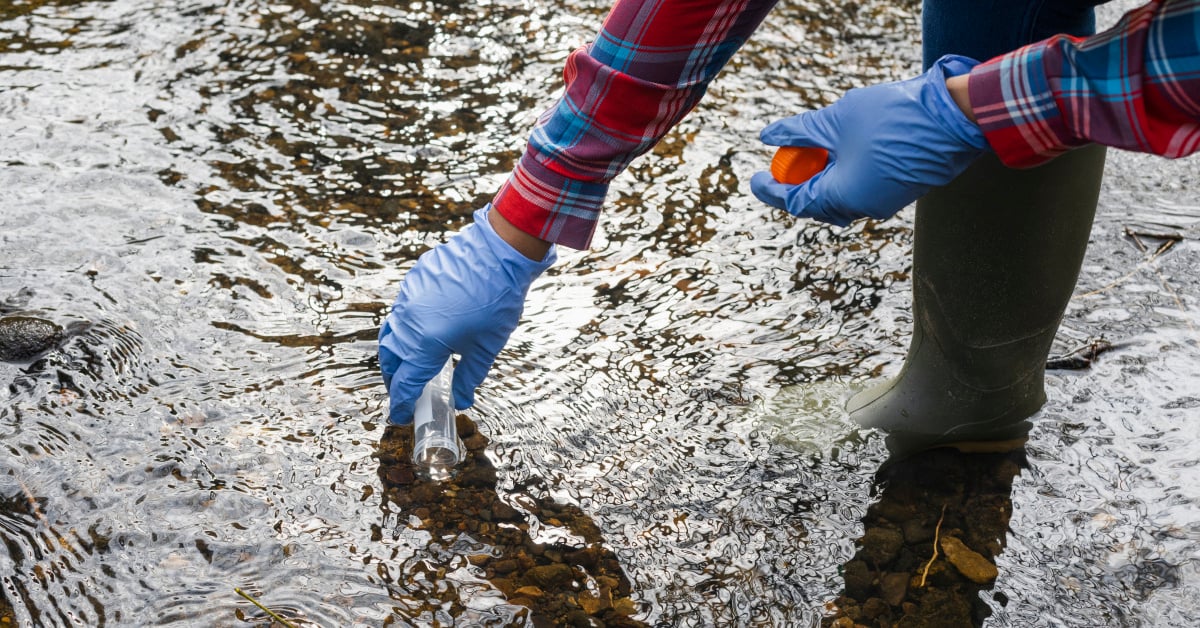Gaining Net Zero industry insights with a PhD through PINZ
7 April 2025 | By: James Meyer | 3 min read
Established in response to environmental concerns, Onunda offers a unique next-generation solution for sewage and organic waste treatment.
Onunda's Chief Technology Officer (CTO) James Meyer decided to study for his PhD through the PINZ CDT to boost research needed by the Cumbria-based SME.
We spoke to James about his project - titled ‘Sewage Sludge Treatment Technology for Sustainable Resource Recovery and Contaminants Abatement’ - and how PINZ was able to help his company expand and improve.
What is PINZ CDT?
PINZ CDT stands for the 'Process Industries: Net Zero' Centre for Doctoral Training. In collaboration with the Process Intensification Group at Newcastle University and the Green Chemistry Centre of Excellence at the University of York, PINZ CDT offers training to help the process industries realise their Net Zero goals and ambitions - from professional certifications to fully-funded PhD training programmes.
How did you get started in your business?
I’ve been fortunate to work in a diverse range of industries including biotechnology, wastewater treatment, industrial drying, and waste gasification. This background cultivated an appreciation for the impact that technology can have on solving real-world problems. This journey has helped me accumulate the technical knowledge and problem-solving skills that now drive our technological endeavours at Onunda.
How did you hear about the PINZ programme?
Having identified a gap in my knowledge of Net Zero, I decided to seek out a suitable PhD programme. I was introduced to PINZ by my supervisors, Professors Anh Phan, and Tom Curtis, with whom I collaborate under the EPSRC Prosperity Partnership initiative. This programme strengthens existing strategic relationships between academia and industry to co-invest in research addressing real-world challenges. Their guidance has been instrumental in aligning my doctoral research with the ongoing development of Onunda’s technology.
Why did you choose to study for a PhD whilst working as CTO of Onunda, and particularly through PINZ and Newcastle University?
I view the PhD as an invaluable opportunity to bridge theoretical research with industrial application. Collaborating with PINZ and Newcastle University has provided a rigorous academic framework that informs and enhances the development of Onunda’s technology.

Microplastics provide a threat to the health of our waterways. Credit: Onunda.
What do you hope to implement from your PhD into the business?
The rigorous research standards of the PhD will allow me to apply a high level of technical scrutiny to our technology, giving us greater confidence in its scalability from pilot to commercial scale. Ultimately, these advancements will strengthen our competitive edge in the market.
How does your involvement with PINZ benefit yourself and the company?
Onunda aims to maintain the health of waterways, stimulate biodiversity, and reduce public health risks by preventing the release of pathogens, harmful chemicals, and microplastics into the natural environment.
PINZ connects me with academics, specialised resources, and like-minded professionals working on Net Zero technologies. It allows our company to stay ahead of the curve by anticipating trends and proactively addressing any challenges.
What potential impact will your PhD with PINZ have on the company and your career?
My research findings will help our company maintain a high level of academic rigour as we develop and refine our technology. Through PINZ, I’m also gaining valuable expertise and insights that will guide our evolution from a startup into a more established organisation.
How have you found the experience so far?
It’s been inspiring to collaborate with professionals and academics equally passionate about reducing carbon emissions. Their range of perspectives has sharpened my research focus and encouraged new ideas.
Is Onunda using any Net Zero technologies already? If so, which and what for?
Yes, Onunda is at the forefront of Net Zero innovation. Our proprietary technology converts sewage sludges into high-calorific syngas, eliminating the reliance on fossil fuels while recovering critical nutrients like phosphorus. This allows the process to be energy self-sufficient and significantly reduces the carbon footprint compared to conventional disposal routes.
'Achieving Net Zero emissions is a core objective for Onunda.'
James Meyer, Chief Technology Officer at Onunda
Does Onunda have any Net Zero aspirations? How do they hope to achieve their goals?
We plan to scale our process and retrofit existing wastewater facilities with our valorisation technology, thereby reducing greenhouse gas emissions and setting a new benchmark for sustainable biosolids management.
What other ways is Onunda benefiting from involvement with PINZ?
Our collaboration with PINZ has expanded our network of academic thought leaders and research experts. These connections have accelerated our innovation cycle and kept us aligned with the highest academic standards.
What advice would you have for other companies thinking about collaborating with PINZ?
My advice is to view collaboration with PINZ as a strategic investment in the future of your business. The programme’s commitment to cutting-edge research and its extensive network can help you unlock new avenues for growth and environmental stewardship.

Onunda understands the importance of testing an environment for microplastics. Credit: Onunda.
What would you say to someone considering doing a PhD alongside a full-time role?
Undertaking a PhD while maintaining a full-time role is challenging yet incredibly rewarding. It demands both time management and a clear vision, but the combination of academic exposure with real-world experience can lead to breakthrough innovations that benefit both your career and your organisation.
You might also like:
- find out more about Onunda
- explore the work of 'Process Industries: Net Zero' Centre for Doctoral Training (PINZ CDT)
- discover how we can work with your business through Newcastle's Business and Partnerships
